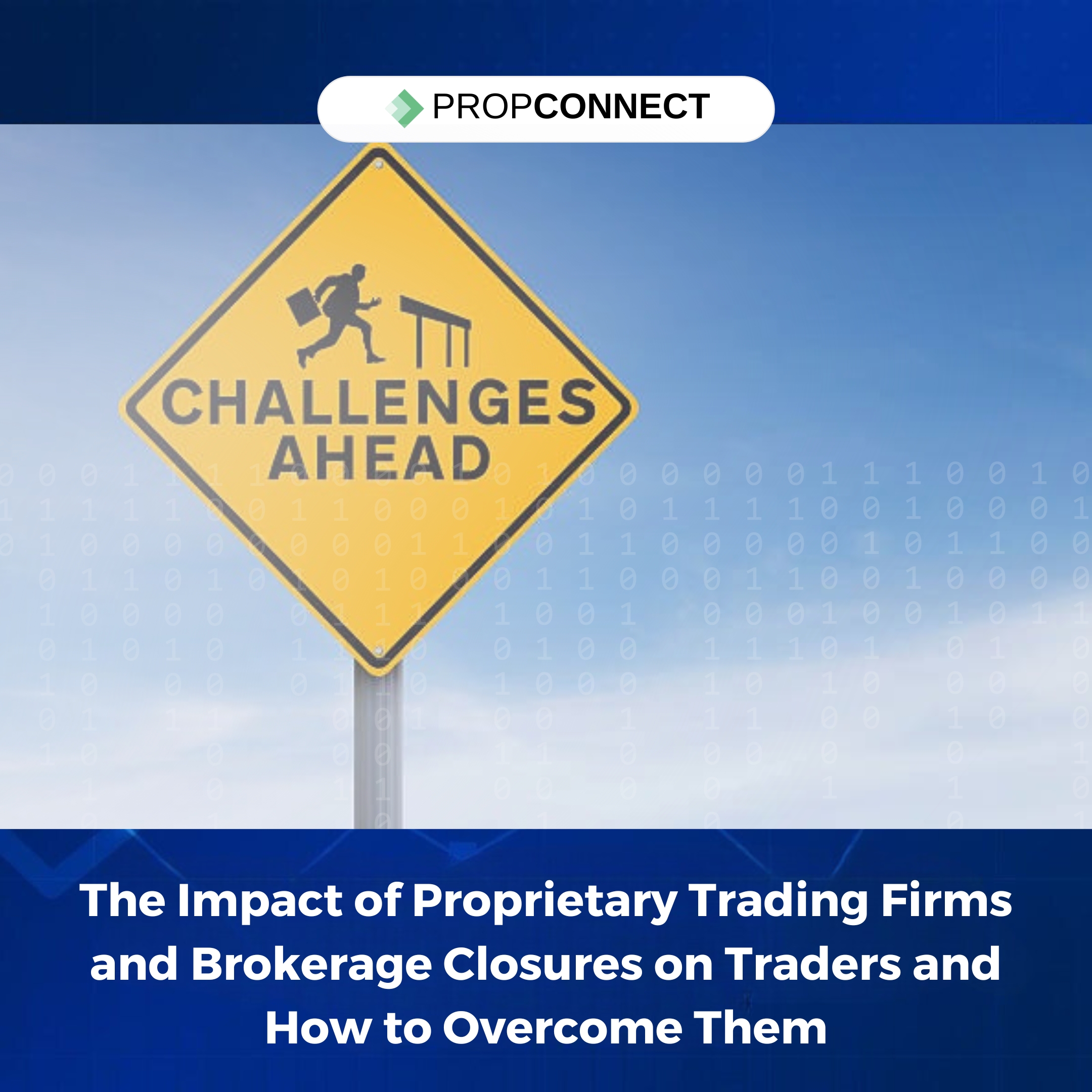Articles
The Impact of Proprietary Trading Firms and Brokerage Closures on Traders and How to Overcome Them
Financial institutions are frequently subject to strict restrictions from regulatory agencies, which might include requirements for reporting and capital sufficiency. It can be expensive and time-consuming to comply with these requirements, especially for smaller prop enterprises that have fewer resources.

Recent months have seen an increase in the closure of brokerage businesses and proprietary trading businesses (prop firms) in the ever-changing financial markets. Numerous circumstances, including market volatility, economic downturns, technology disruptions, and regulatory changes, might lead to these closures. These closures not only impact the traders who depend on these institutions for infrastructure, resources, and capital, but they can also have a substantial effect on the firms themselves. The article will examine the difficulties that prop businesses and brokers confront, the causes of their closures, and the effects these closures have on traders.
In the current market climate, proprietary trading firms—which are renowned for giving traders access to cash and cutting-edge trading infrastructure—face an array of difficulties. Navigating regulatory changes and compliance requirements is one of the main challenges. Financial institutions are frequently subject to strict restrictions from regulatory agencies, which might include requirements for reporting and capital sufficiency. It can be expensive and time-consuming to comply with these requirements, especially for smaller prop enterprises that have fewer resources. In the end, noncompliance with regulatory standards may result in the firm closing due to fines, sanctions, or even the revocation of trading licences.
Furthermore, the effects of economic downturns and market volatility still affect prop companies. Unexpected market shocks, like the COVID-19 pandemic or the 2008 global financial crisis, can cause trading firms to suffer large losses and reduce their capital and liquidity. During periods of increased market volatility, investors can withdraw their funds from prop businesses, worsening their financial strain and potentially pushing them to close.
Disruptions in technology also present a big problem for brokers and prop businesses. The financial markets have changed due to the emergence of algorithmic trading, high-frequency trading, and artificial intelligence. This has brought forth both opportunities and challenges for trading firms. Businesses that don't keep up with technological developments run the risk of becoming obsolete, losing market share, and finally going out of business.
In a similar vein, brokerage businesses, acting as go-betweens for traders and the financial markets, too have challenges. Due to the intense competition in the brokerage industry, there is a race to the bottom in terms of fees and commissions, which is reducing profit margins for brokerage businesses. As a result, some brokerage companies may decide to reduce infrastructure, staff, or services in an effort to save money. However, this could lower the calibre of their services and undermine consumer confidence.
Moreover, brokerage businesses are not exempt from legal challenges and regulatory scrutiny. Securities law violations, fraud, and poor management practices can damage brokerage businesses' reputations and lead to legal action, regulatory inquiries, and fines. Brokerage firms may find it difficult to maintain a profitable business model as a result of these legal issues depleting their resources.
For traders who depend on prop firms and brokerage firms for funding, resources, and support, their shutdown may have significant ramifications. Prop firm traders may find themselves without access to infrastructure, cutting-edge technology, or trading funds in the event of the firm's abrupt collapse, which might seriously impair their ability to make a living from their trading. Traders can also have trouble getting their assets back or locating other financial and support sources.
In the event of a brokerage closure, traders who have accounts with brokerage firms can also have trouble accessing their money, making trades, or getting customer service. Furthermore, traders may seek out more reliable and respectable institutions—albeit at potentially greater costs—as a result of brokerage businesses closing, which could undermine investor confidence in the financial markets.
In summary, the closing of brokerage houses and proprietary trading companies is indicative of the many difficulties and unknowns that the financial sector is currently confronting. These institutions struggled and eventually closed as a result of technological upheavals, market volatility, economic downturns, and regulatory reforms. These closures can have a significant negative effect on traders by interfering with their trading activity, endangering their livelihoods, and reducing confidence in the financial markets. In order to successfully handle the challenges and uncertainties that lie ahead, traders need to stay alert, flexible, and knowledgeable as the business continues to change.

